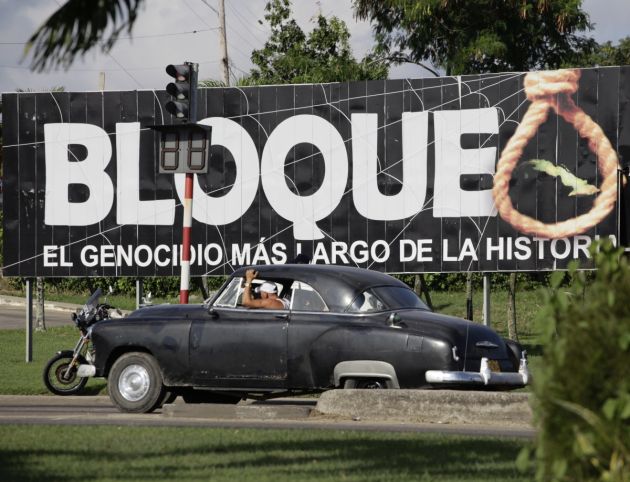World Council of Churches urges US to normalize relations with Cuba

BUSAN, South Korea - The World Council of Churches, representing some 560 million Christians, has urged the United States to lifts its embargo on Cuba and to normalize relations with the communist Caribbean nation.
"We believe that the economic, commercial and financial blockade against any country causes enormous pain to its people, especially the poor and vulnerable.
"In this context, the delegates of the 10th Assembly of the WCC urge the US government to lift the economic sanctions against Cuba and to normalize relations between the U.S. and Cuba."
The WCC holds an assembly about once every seven years and 10th Assembly was held in Busan, drawing some 5,000 participants to South Korea's second biggest city.
The Geneva-based grouping represents mainly Anglican, Orthodox and Protestant churches and although the Roman Catholic Church is not a member its serves on WCC committees and cooperates with it in many spheres.
In the resolution passed by the Assembly the highest governing body of the WCC on November 7 it noted that relations between the United States and Cuba have been strained by tensions and confrontations since the Cuban Revolution of 1959.
It said the long-standing U.S. embargo was reinforced in October 1992 by the Cuban Democracy Act and in 1996 by the Cuban Liberty and Democracy Solidarity Act.
These acts prohibited U.S. companies' foreign-based subsidiaries from trading with Cuba, US citizens' travel to Cuba, and foreign remittances to Cuba.
On October 21, 2013, 21 leaders of various Christian denominations in the United States addressed a letter to U.S. President Barack Obama.
In it they urged the United States to take concrete actions pursuing a path toward improved relations with Cuba.
The letter specifically urged the U.S. President to initiate direct, high-level dialogue with the Cuban government; to remove Cuba from the U.S. list of State sponsors of terrorism; and to lift all restrictions on people-to-people travel between the United States and Cuba.
"The delegates of the 10th Assembly of the WCC endorse the opinion of the US church leaders and the concerns and recommendations expressed by them," the resolution said.
The delegates of the assembly also noted that the United Nations General Assembly, on 29 October 2013, voted overwhelmingly for the twenty-second time to condemn the U.S. economic embargo against Cuba.
